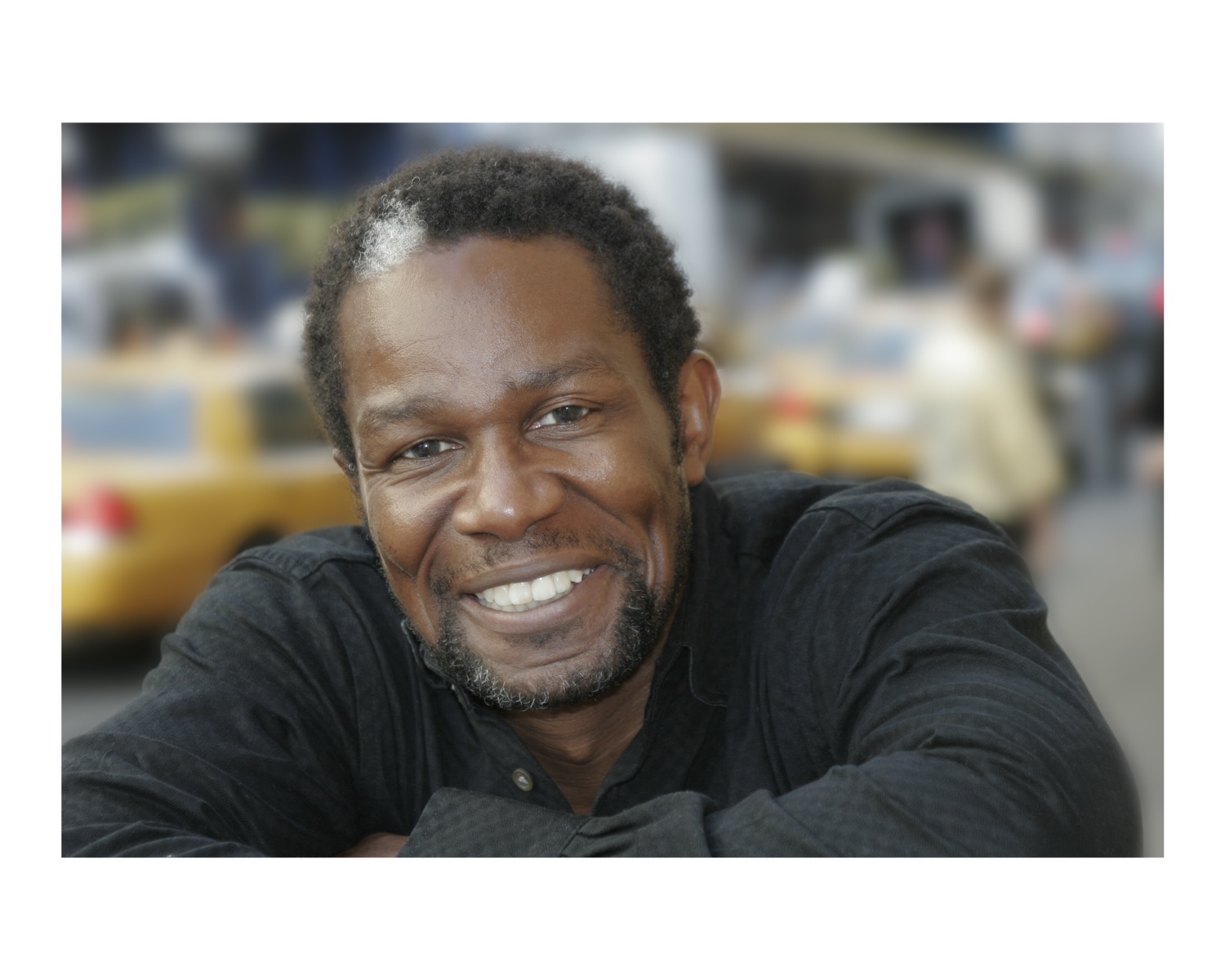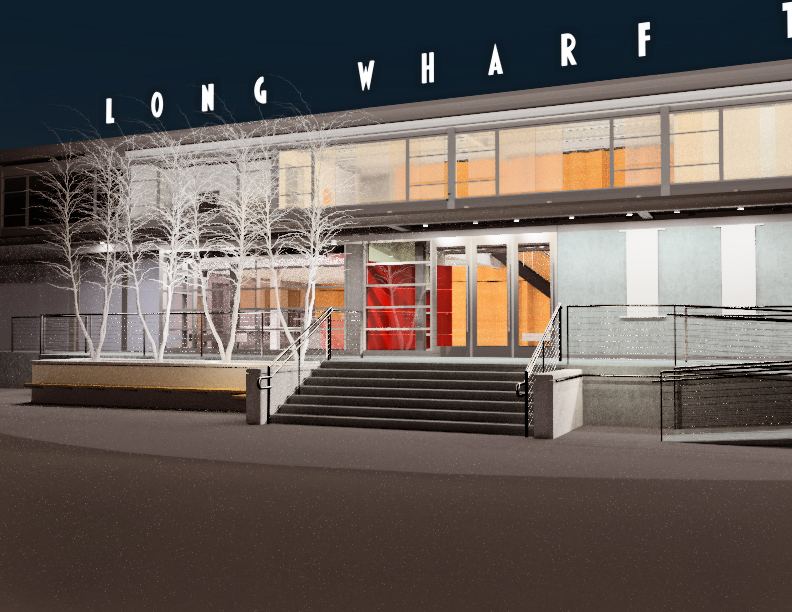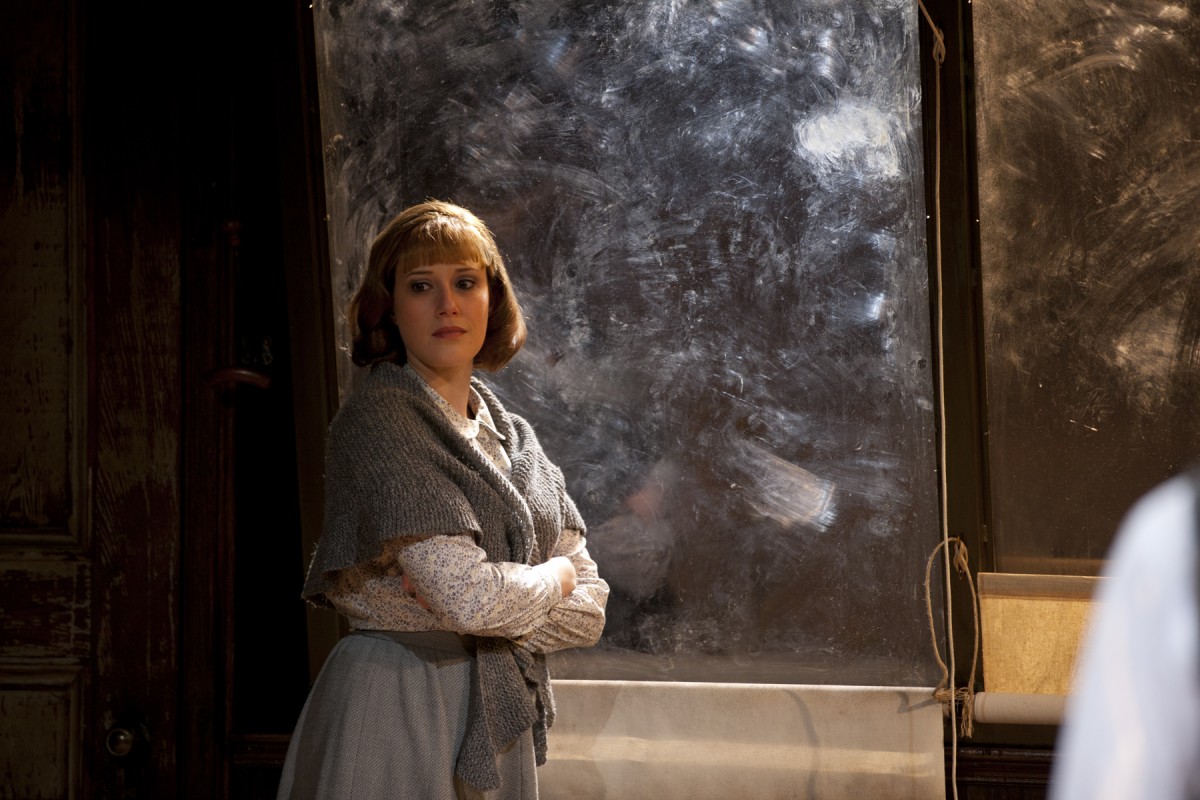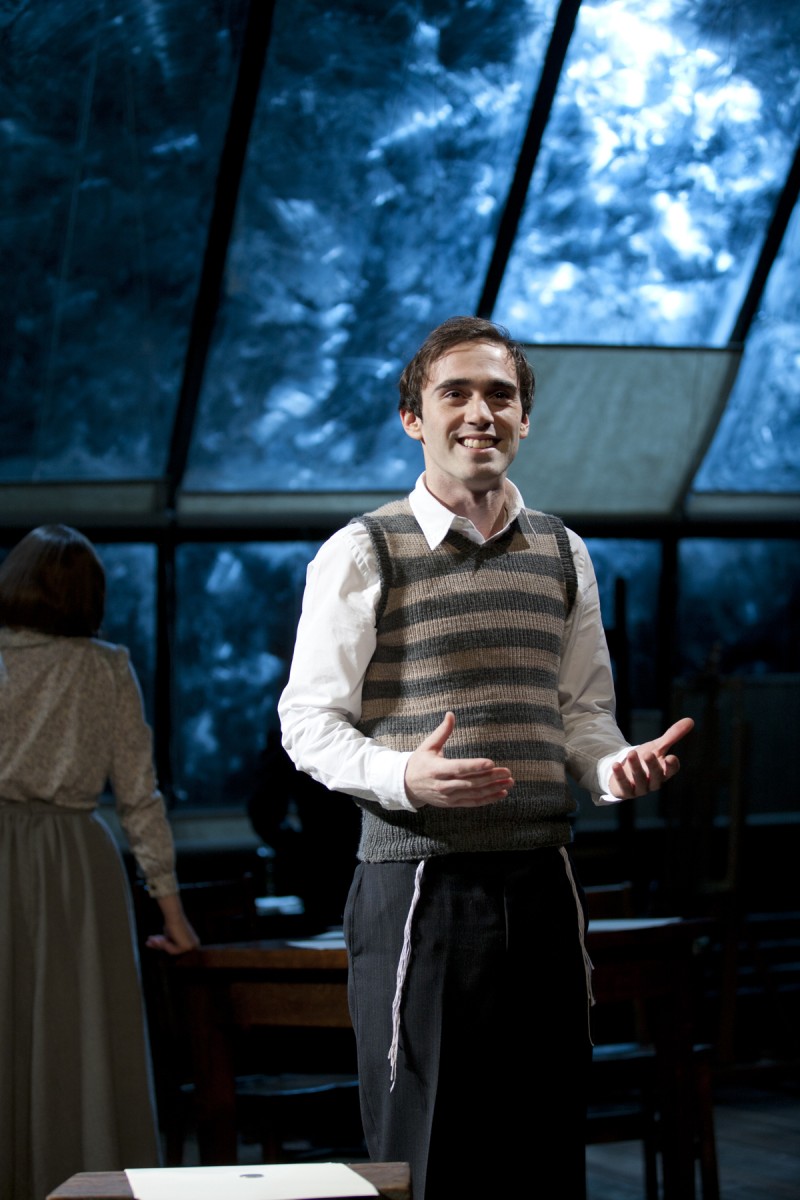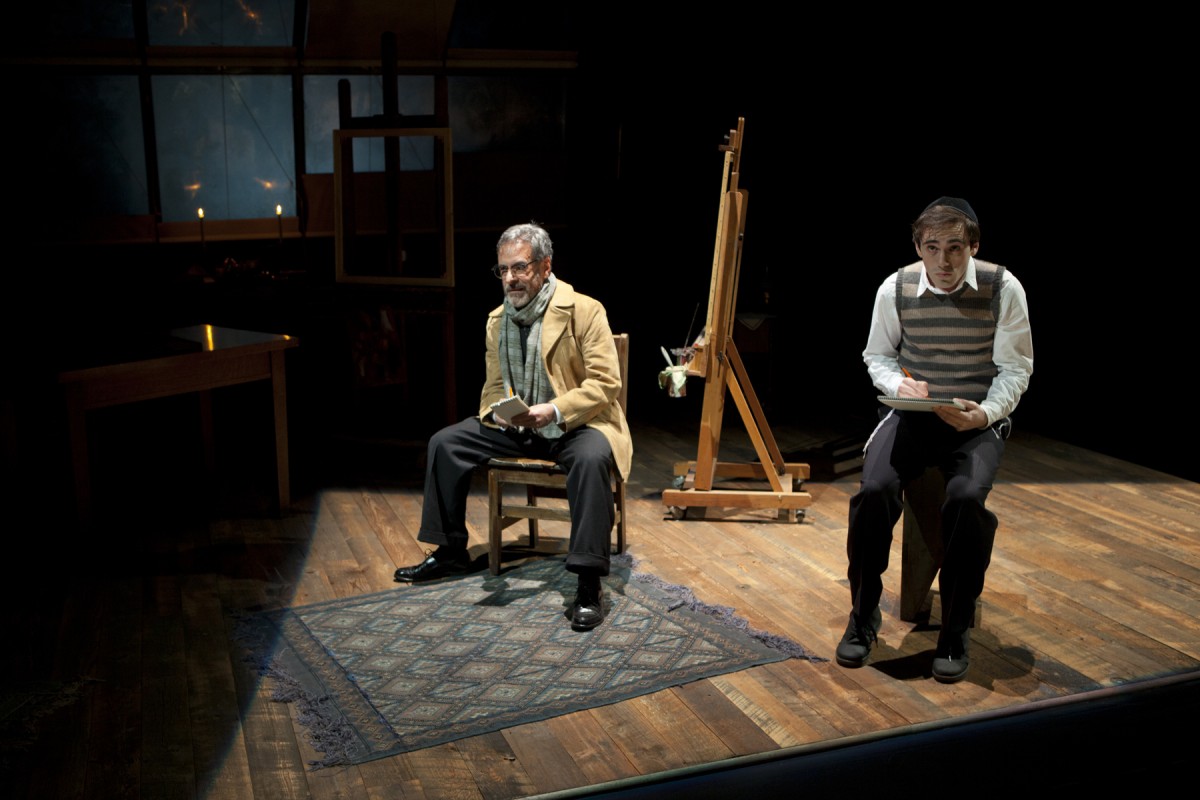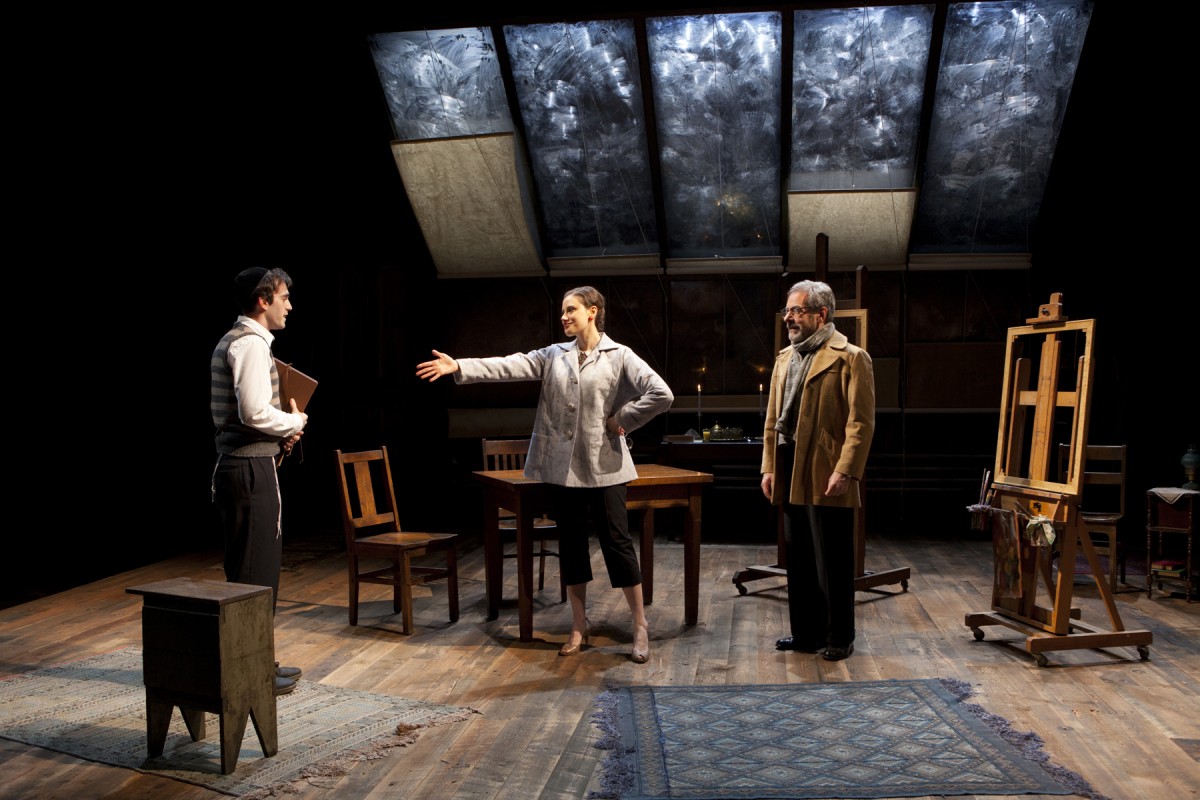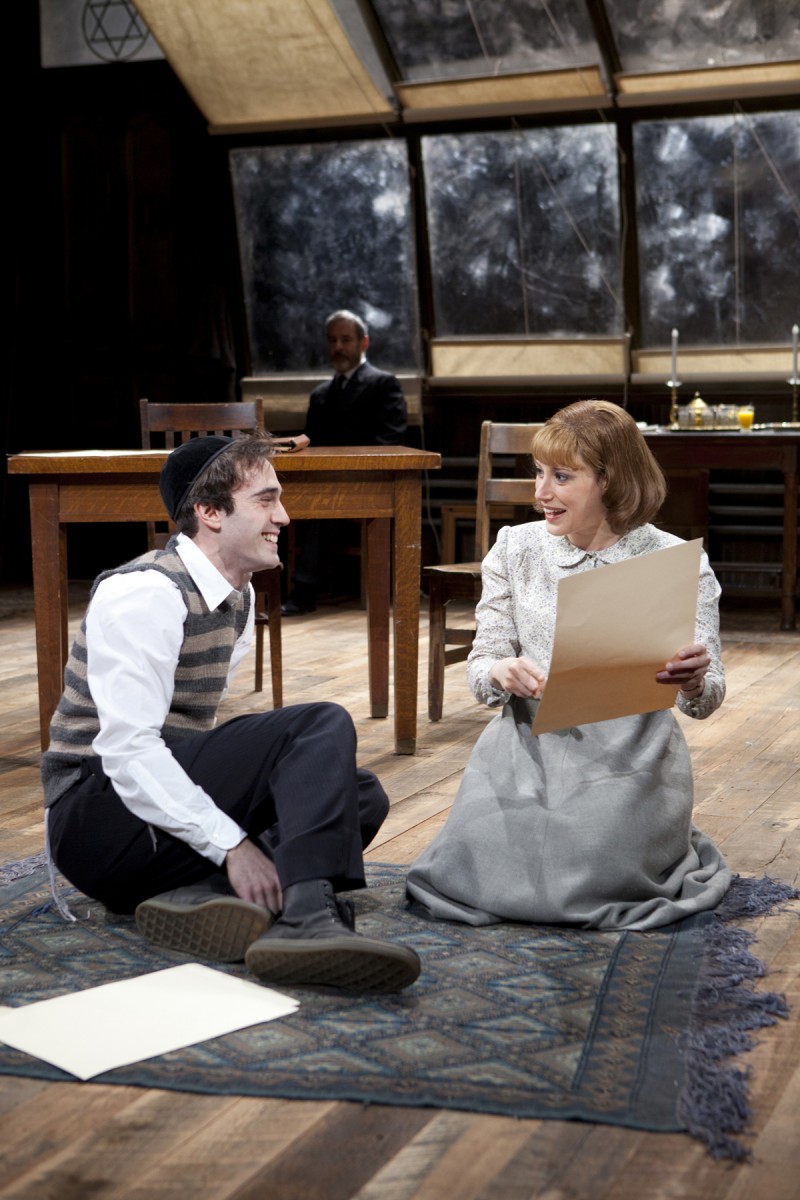One of the most popular of last season’s productions at the Long Wharf Theatre—My Name is Asher Lev—will be produced Off-Broadway at the Westside Theatre, 407 W. 43rd Street, beginning on November 8, with the opening night set for November 28. Director Gordon Edelstein, and Ari Brand and Mark Nelson—both excellent in the Long Wharf show—will reunite in New York to recreate this thoughtful and compact re-telling of Chaim Potok’s novel about a young Jewish painter coming to terms with his faith’s prohibition on images, while also tracing the drama of the artist’s growth within his family and his community.
The play closed last year’s Long Wharf season, offering an autobiographical drama staged as a direct address to the audience. And this year’s Long Wharf season begins with an autobiographical play that is a direct address to the audience, also directed by Edelstein.
This time the play is Satchmo at the Waldorf, written by Terry Teachout, drama critic for the Wall Street Journal, and the biographer of Louis Armstrong, the subject of the play. Unlike Asher Lev, Satchmo is a one-man show, with celebrated actor John Douglas Thompson (recently featured in a New Yorker profile) playing the jazz great, known as “Satchmo” (short for “satchel mouth,” a nickname invented because of his wide mouth and the distinctive style of trumpet playing that issued from it).
Unlike the production of Ella in the Long Wharf’s 2010 Season, Satchmo is not about the music. Teachout has created a play that, set backstage after Armstrong’s last performance, looks at the musician’s life and long career from his perspective, bringing forward the fraught relationship with his controlling manager, Joe Glaser. Thompson plays Armstrong, Glaser, and at one point Miles Davis. Teachout said he deliberately avoided the “unchallenging, sweet-tempered exercises in hagiography” that most biographical plays become, wanting to give us an unadorned Armstrong, closer to the actual man than the stage persona beloved by so many. Much of the play’s success, one suspects, will ride on Thompson’s skill at getting us inside the character.
Satchmo at the Waldorf opens tomorrow night, Wednesday, October 3, and runs to Sunday, November 4 on Stage II.
The season showcases Long Wharf’s two resident directors: Edelstein, the Artistic Director, and Eric Ting, Associate Artistic Director, with Edelstein helming Satchmo, and two works on the Main Stage by hard-hitting playwrights: Sam Shepard’s Curse of the Starving Class, a drama of a family tearing itself apart to get ahead, and William Mastrosimone’s Ride the Tiger, about the behind-the-scenes sex and shenanigans leading up to the election of 1960, with John F. Kennedy, mob boss Sam Giancarlo, and Frank Sinatra trying to bed the same woman. Judith Ivey, whose work in Shirley Valentine at the Long Wharf was warmly received in 2010, will be featured in the Shepard play.
Ting will direct Clybourne Park; Bruce Norris’ drama on race in America is set in the house bought by the Youngers, the upwardly mobile black family in Lorraine Hansberry’s A Raisin in the Sun. The much acclaimed play—it won both the Pulitizer Prize for Drama in 2011 and the Tony Award for Best Play in 2012—will close the season. Midseason, Ting directs January Joiner, a world premiere, on Stage II; it's a “horror comedy,” by young playwright Laura Jacqmin, set at a weight-loss boot camp (a “January joiner” is someone who joins a weight-loss program in January as a New Year’s resolution, but soon drops out).
The play this season not directed by Edelstein or Ting should be interesting as well: film star and Broadway actress Kathleen Turner will direct herself in The Killing of Sister George, Frank Marcus’s 1964 play, a bristling comedy about a radio-actress unwilling to let her role go off the air without a fight. The 1968 film of the play played up, rather sensationally, the lesbian relationship between the radio star and her housemate, and it will be interesting to see what spin the play receives today, directed by its star.
Meanwhile, the much-anticipated renovation continues for the mainstage. The seating is being greatly improved—more leg room!—and the lobby has been redesigned, the bathrooms enlarged, and the façade has had “work done.”
